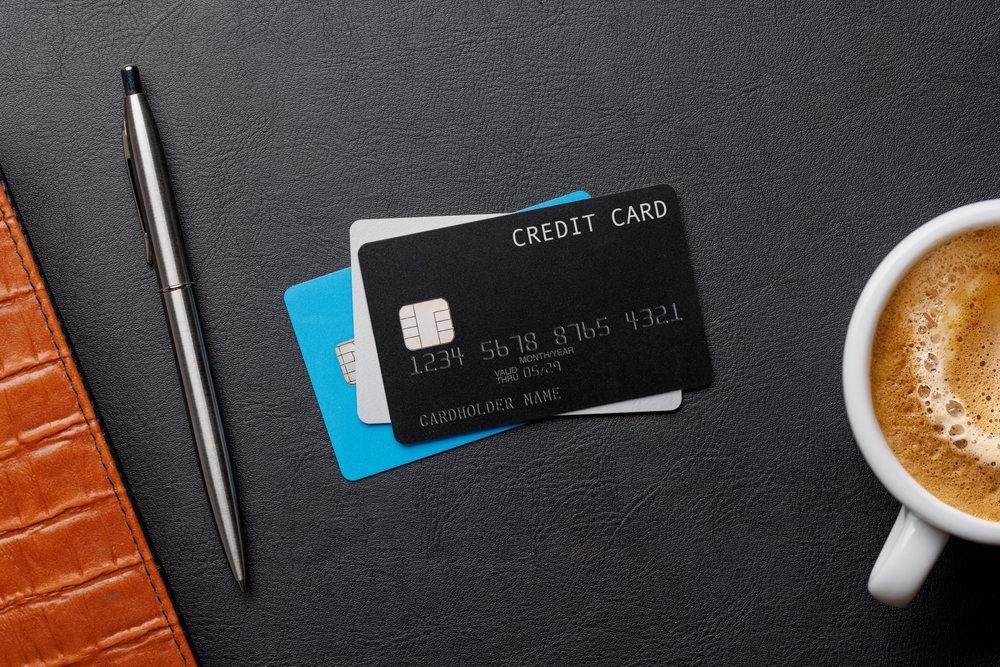
Credit card debt can sneak up on anyone. A few extra purchases here, a missed payment there, and suddenly it feels overwhelming. If you’re not careful, credit card debt can spiral out of control and threaten your financial well-being. It’s easy to ignore the red flags, but the consequences—like high interest, damaged credit, and constant stress—are real. Recognizing the signs early is the first step to regaining control. Let’s look at the most common warning signs that your credit card debt might be dangerously out of control.
1. You’re Only Making Minimum Payments
If you find yourself making just the minimum payment on your credit card each month, it’s a clear warning sign. While it might keep your account current, it barely makes a dent in your balance. Most of your payment goes toward interest, not the principal. Over time, your credit card debt grows instead of shrinking. This habit can lock you into years of payments and thousands of dollars in extra interest. If this sounds familiar, it’s time to re-examine your budget and look for ways to pay more than the minimum.
2. Your Cards Are Maxed Out or Near Their Limits
Maxing out your credit cards or getting close to your credit limits is a major indicator of out-of-control debt. Not only does this increase your credit utilization ratio, which can hurt your credit score, but it also leaves you with little room for emergencies. Credit card debt at or near the limit often means you’re spending more than you earn. If you’re regularly bumping up against your credit limits, your financial stability is at risk.
3. You’re Using One Card to Pay Another
Are you moving balances from one card to another just to keep up with payments? This is a sign that your credit card debt is no longer manageable. Balance transfers and cash advances may offer temporary relief, but they don’t solve the underlying problem. These moves often come with high fees and increased interest rates. If you’re shuffling money between cards, it’s time to hit pause and seek help before things get worse.
4. You’re Hiding Purchases or Statements
If you feel the need to hide your credit card statements or purchases from your spouse, partner, or family, that’s a red flag. Secrecy around finances often means guilt or fear about your spending habits. It’s a sign you’re not comfortable with your current level of credit card debt. Open communication and honest budgeting are essential to regain control. If you’re hiding the truth, it’s a sign to face your debt head-on.
5. You’re Getting Calls from Collectors
When you start missing payments, your creditors may turn your debt over to collection agencies. Getting frequent calls or letters from collectors is a clear sign that your credit card debt has become unmanageable. Not only does this add stress to your daily life, but it can also seriously damage your credit score. Ignoring these calls won’t make them go away. Instead, it’s important to address the issue directly and seek solutions, such as negotiating a payment plan or working with a reputable credit counseling service.
6. Your Credit Score Is Dropping
A falling credit score is often one of the first signs that your credit card debt is out of control. Missed payments, high balances, and frequent credit applications can all drag your score down. A lower credit score makes it harder to qualify for loans, rent an apartment, or even get a job in some cases. If you notice your credit score slipping, check your credit report for high balances and missed payments. Many free resources, like AnnualCreditReport.com, allow you to monitor your credit and spot problems early.
7. You’re Feeling Constant Stress Over Your Finances
Financial stress can affect every part of your life. If you’re losing sleep, arguing with loved ones, or feeling anxious about opening your mail, your credit card debt may be the cause. Persistent worry about how you’ll pay your bills or whether you can cover emergencies is a sign that things have gotten out of hand. Ignoring these feelings won’t make them go away. It’s important to acknowledge the stress and take steps to reduce your credit card debt before it impacts your health and relationships.
How to Take Back Control of Your Credit Card Debt
If you recognize any of these warning signs in your own life, don’t panic—but don’t ignore them either. The sooner you address your credit card debt, the easier it will be to fix. Start by tracking your expenses, creating a realistic budget, and looking for ways to cut unnecessary spending. Consider reaching out to a nonprofit credit counseling agency or exploring debt relief options if you need extra help. Remember, you’re not alone—many people have faced and overcome credit card debt.
What warning signs have you noticed in your own financial life? Share your experiences or tips in the comments below!
What to Read Next…
- 7 Credit Card Features Disappearing Without Any Notice
- 5 Things That Instantly Decrease Your Credit Score By 50 Points
- The Benefits Of Taking Personal Loans And Their Impact On Credit Scores
- Are Budgeting Apps Designed To Push You Into Debt
- 7 Hidden Fees That Aren’t Labeled As Fees At All
The post 7 Signs Your Credit Card Debt Is Dangerously Out of Control appeared first on The Free Financial Advisor.







